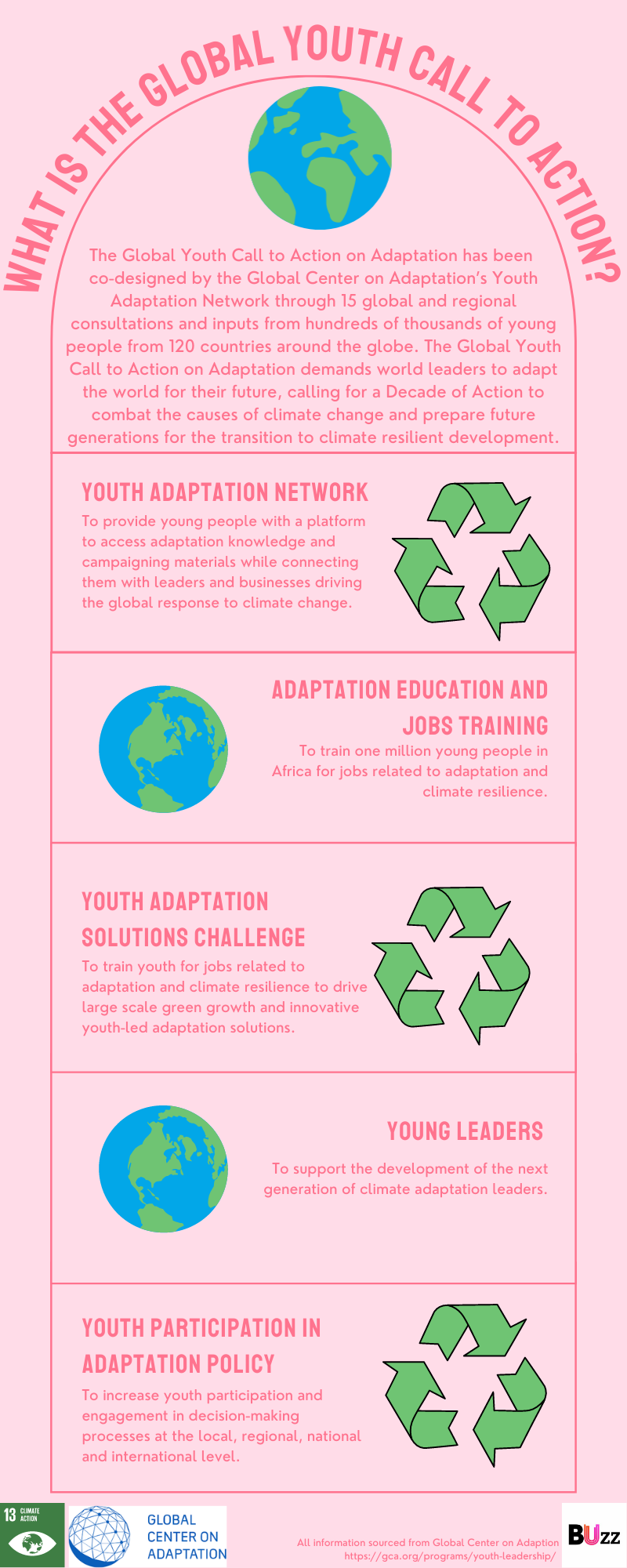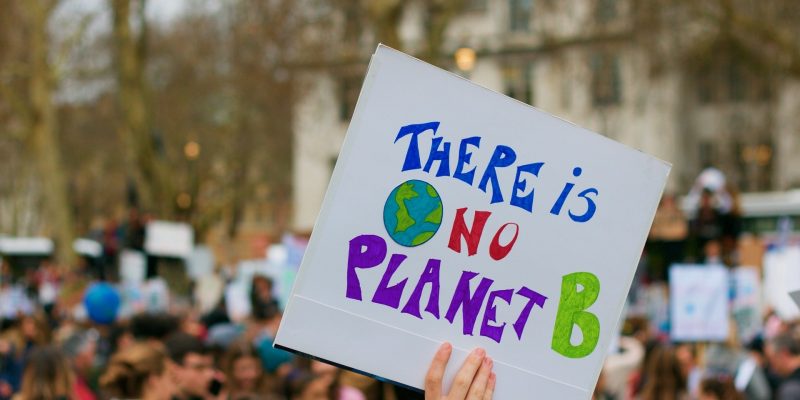On Monday the 25th of January, world leaders met virtually for the Climate Adaptation Summit hosted by the Netherlands. On the agenda was the call to action put forward by the Youth Adaptation Network.
The network describes their call as ‘a demand for world leaders to adapt the world for their future’ focusing on a ‘Decade of Action to combat the causes of climate change and prepare future generations for the transition to climate-resilient development.’
Whilst many goals were put forward for the Decade of Action – the key one is education. The Youth Network wants a greater focus on climate change in education around the globe.
Buzz’s reporter, Gracie Leader, investigated the different ways we in the UK can educate the next generation and found that the arts, theatre in particular, are already making great waves in this area.
PigFoot Theatre was founded in 2017 and the company has been carbon neutral for the last two years. Hetty Hodgson is a director & producer who, alongside her friend Bea Udale-Smith, runs the collaborative theatre company.
“Climate activism is something I’ve always wanted to take a bigger role in and as a theatre maker I wanted to know how I could make my practices environmentally sustainable.”
PigFoot is dedicated to making ‘sustainable theatre about the climate & ecological crisis’ and so far has picked up a growing array of awards including The Sunday Times Playwriting Award and the Camden People’s Theatre Award.
“There are technological limitations of powering your energy through renewable methods. Theatres generally are not using very green energy to power their buildings so we have to create it ourselves.”
Pigfoot have a number of methods to ensure their work is carbon neutral and environmentally sustainable.
They ensure everything they use for their props and sets is recyclable and often borrows from other companies to guarantee they have a longer lifespan before being sent to a landfill.
Their shows are also powered by kinetic energy, if that be performers on bikes or, more recently with a dance floor in which the collective energy of the performer’s movements power the show.
Their next challenge is minimising their digital carbon footprint. By doing so Pigfoot Theatre is one of the many companies in the UK and across the globe helping to achieve the UN Sustainable Development Goals.
The United Nations wants to ‘take urgent action to combat climate change and its impacts’ as ‘climate change is affecting every country on every continent. It is disrupting national economies and affecting lives. Weather patterns are changing, sea levels are rising, and weather events are becoming more extreme.’
Hetty and Bea at Pigfoot are eager to educate the next generation about the climate crisis.
“For me personally delivering workshops is my favourite of all the work we do at Pigfoot,” Hetty explains. “At the beginning of this year we delivered these workshops for free in local schools around the Southwark boroughs and it was just the biggest joy.”
Hetty describes these workshops as “an inspiration because the kids are so interested, engaged, passionate, and excited to learn.”
“It’s super exciting to find ways in which kids can access creative ways of understanding the climate crisis and share their anxieties and fears.”
She thinks facilitating a space where the younger generation can learn about the climate crisis is hugely important.
“We want to empower them and amplify their voices. We want to make them feel as though they are being heard, listened to and understood.”
Hetty is currently working with a school in Camden. “Working with these children for a longer period of time has meant we’ve been able to see sustained growth in development. It’s definitely something we want to do more of in the future.”
The show Pigfoot and the children have collaborated on focuses on climate justice. “We’ve been able to connect these school kids to young climate activists all over the world who are being most affected by the climate crisis right now.”
“With this new piece of work, we are sharing stories from amazing activists all over the world who have now become our friends.”
Looking ahead Hetty wants to continue making carbon-neutral work at PigFoot Theatre. “We want to find ways to share our technology and methods and bring them to other people for them to use as well.”
Hetty and everyone at PigFoot can only be described as trailblazers of the industry. But will trickle this down into the wider field?
Nathan Stickley has been a theatre practitioner since he studied at University. He’s been teaching children about the arts for nearly a decade.
On the importance of educating children and young adults through theatre, he said:
“Theatre is an invaluable educational tool – it champions creativity, it teaches about the human condition, understanding mankind and of the plights of others, cultures, and history. A live theatrical experience is like nothing else in the world, it is evocative and inspiring – anything a person learns stays with them for the rest of their lives.
One of theatre’s primary objectives is to educate. It can impart wisdom and understanding in such a visceral way it makes it an invaluable educational tool. Whilst theatre should refrain from preaching or forcing an agenda, it should always aim to educate and inspire.”
As a director and current Head of Programming at the Harlow Playhouse, Nathan feels that this ‘invaluable educational tool’ should be used to tackle important issues in the current public conversation.
“The climate crisis is an international environmental and social issue and as a society, we should be educating our youth using whatever platform we can. Theatre should play an integral part in informing all generations about every crisis and cause.”
At Buzz, we wanted to find out if parents saw theatre and drama studies as a viable way of educating their children on important topics such as the climate crisis.
Katie Ball has been sending her 11-year-old daughter to the local drama club for several years.
During this time Martha has learned about themes and topics Katie thinks she otherwise wouldn’t have in primary school education alone.
“She certainly becomes interested in the topics. If she is studying a play we watch the films and we talk about issues together that might come up such as childhood or romance.”
Katie explains how often Martha is able to engage with these important topics easier than when in the classroom because of the fun environment she is in.
In regards to the current climate crisis, Katie thinks drama club is the perfect setting for her daughter to gain a better understanding of the situation.
“They could do techniques or games such as improvisation around the topic. It’s so easy to include subtle learning within the fun!”
As the Youth Adaptation Network’s call to action gains traction it certainly indicates a shift in the public conversation of how we should be preparing the next generation for the environmental challenges of their future.
What do you think? Join the conversation over on our Twitter and share your thoughts by answering the questions in our poll!

To read more of Buzz’s coverage on #ClimateAction check out ‘Climate-friendly transport: the cyclists in Amsterdam leading the way’ and other stories here.


 The Class Ceiling in Fashion
The Class Ceiling in Fashion